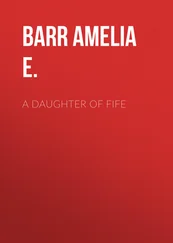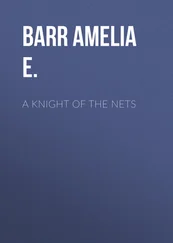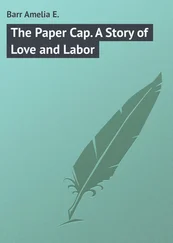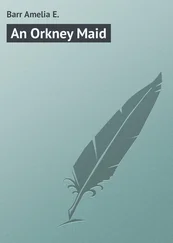Amelia Barr - Christine - A Fife Fisher Girl
Здесь есть возможность читать онлайн «Amelia Barr - Christine - A Fife Fisher Girl» — ознакомительный отрывок электронной книги совершенно бесплатно, а после прочтения отрывка купить полную версию. В некоторых случаях можно слушать аудио, скачать через торрент в формате fb2 и присутствует краткое содержание. Жанр: foreign_prose, на английском языке. Описание произведения, (предисловие) а так же отзывы посетителей доступны на портале библиотеки ЛибКат.
- Название:Christine: A Fife Fisher Girl
- Автор:
- Жанр:
- Год:неизвестен
- ISBN:нет данных
- Рейтинг книги:3 / 5. Голосов: 1
-
Избранное:Добавить в избранное
- Отзывы:
-
Ваша оценка:
- 60
- 1
- 2
- 3
- 4
- 5
Christine: A Fife Fisher Girl: краткое содержание, описание и аннотация
Предлагаем к чтению аннотацию, описание, краткое содержание или предисловие (зависит от того, что написал сам автор книги «Christine: A Fife Fisher Girl»). Если вы не нашли необходимую информацию о книге — напишите в комментариях, мы постараемся отыскать её.
Christine: A Fife Fisher Girl — читать онлайн ознакомительный отрывок
Ниже представлен текст книги, разбитый по страницам. Система сохранения места последней прочитанной страницы, позволяет с удобством читать онлайн бесплатно книгу «Christine: A Fife Fisher Girl», без необходимости каждый раз заново искать на чём Вы остановились. Поставьте закладку, и сможете в любой момент перейти на страницу, на которой закончили чтение.
Интервал:
Закладка:
Ruleson’s boat led the way, because it was Ruleson’s boat that had found the fish, and Christine stood at the pier-edge cheering her strong, brave father, and not forgetting a smile and a wave of her hand for the handsome Cluny at the tiller. To her these two represented the very topmost types of brave and honorable humanity. The herring they were seeking were easily found, for it was the Grand Shoal, and it altered the very look of the ocean, as it drove the water before it in a kind of flushing ripple. Once, as the boats approached them, the shoal sank for at least ten minutes, and then rose in a body again, reflecting in the splendid sunset marvelous colors and silvery sheen.
With a sweet happiness in her heart, Christine went slowly home. She did not go into the village, she walked along the shore, over the wet sands to the little gate, which opened upon their garden. On her way she passed the life-boat. It was in full readiness for launching at a moment’s notice, and she went close to it, and patted it on the bow, just as a farmer’s daughter would pat the neck of a favorite horse.
“Ye hae saved the lives of men,” she said. “God bless ye, boatie!” and she said it again, and then stooped and looked at a little brass plate screwed to the stern locker, on which were engraved these words:
Put your trust in God,
And do your best.
And as she climbed the garden, she thought of the lad who had left Culraine thirty years ago, and gone to Glasgow to learn ship building, and who had given this boat to his native village out of his first savings. “And it has been a lucky boat,” she said softly, “every year it has saved lives,” and then she remembered the well-known melody, and sang joyously —
“Weel may the keel row,
And better may she speed,
Weel may the keel row,
That wins the bairnies’ bread.
“Weel may the keel row,
Amid the stormy strife,
Weel may the keel row
That saves the sailor’s life.
“God bless the Life-Boat!
In the stormy strife,
Saving drowning men,
On the seas o’ Fife.
“Weel may her keel row – ”
Then with a merry, inward laugh she stopped, and said with pretended displeasure: “Be quiet, Christine! You’re makin’ poetry again, and you shouldna do the like o’ that foolishness. Neil thinks it isna becoming for women to mak’ poetry – he says men lose their good sense when they do it, and women! He hadna the words for their shortcomings in the matter. He could only glower and shake his head, and look up at the ceiling, which he remarked needed a coat o’ clean lime and water. Weel, I suppose Neil is right! There’s many a thing not becomin’ to women, and nae doubt makin’ poetry up is among them.”
When she entered the cottage, she found the Domine, Dr. Magnus Trenabie, drinking a cup of tea at the fireside. He had been to the pier to see the boats sail, for all the men of his parish were near and dear to him. He was an extraordinary man – a scholar who had taken many degrees and honors, and not exhausted his mental powers in getting them – a calm, sabbatic mystic, usually so quiet that his simple presence had a sacramental efficacy – a man who never reasoned, being full of faith; a man enlightened by his heart, not by his brain.
Being spiritually of celestial race, he was lodged in a suitable body. Its frame was Norse, its blood Celtic. He appeared to be a small man, when he stood among the gigantic fishermen who obeyed him like little children, but he was really of average height, graceful and slender. His head was remarkably long and deep, his light hair straight and fine. The expression of his face was usually calm and still, perhaps a little cold, but there was every now and then a look of flame. Spiritually, he had a great, tender soul quite happy to dwell in a little house. Men and women loved him, he was the angel on the hearth of every home in Culraine.
When Christine entered the cottage, the atmosphere of the sea was around and about her. The salt air was in her clothing, the fresh wind in her loosened hair, and she had a touch of its impetuosity in the hurry of her feet, the toss of her manner, the ring of her voice.
“O Mither!” she cried, then seeing the Domine, she made a little curtsey, and spoke to him first. “I was noticing you, Sir, among the men on the pier. I thought you were going with them this night.”
“They have hard work this night, Christine, and my heart tells me they will be wanting to say little words they would not like me to hear.”
“You could hae corrected them, Sir.”
“I am not caring to correct them, tonight. Words often help work, and tired fishers, casting their heavy nets overboard, don’t do that work without a few words that help them. The words are not sinful, but they might not say them if I was present.”
“I know, Sir,” answered Margot. “I hae a few o’ such words always handy. When I’m hurried and flurried, I canna help them gettin’ outside my lips – but there’s nae ill in them – they just keep me going. I wad gie up, wanting them.”
“When soldiers, Margot, are sent on a forlorn hope of capturing a strong fort, they go up to it cheering. When our men launch the big life-boat, how do they do it, Christine?”
“Cheering, Sir!”
“To be sure, and when weary men cast the big, heavy nets, they find words to help them. I know a lad who always gets his nets overboard with shouting the name of the girl he loves. He has a name for her that nobody but himself can know, or he just shouts ‘Dearie,’ and with one great heave, the nets are overboard.” And as he said these words he glanced at Christine, and her heart throbbed, and her eyes beamed, for she knew that the lad was Cluny.
“I was seeing our life-boat, as I came home,” she said, “and I was feeling as if the boat could feel, and if she hadna been sae big, I would hae put my arms round about her. I hope that wasna any kind o’ idolatry, Sir?”
“No, no, Christine. It is a feeling of our humanity, that is wide as the world. Whatever appears to struggle and suffer, appears to have life. See how a boat bares her breast to the storm, and in spite of winds and waves, wins her way home, not losing a life that has been committed to her. And nothing on earth can look more broken-hearted than a stranded boat, that has lost all her men. Once I spent a few weeks among the Hovellers – that is, among the sailors who man the life-boats stationed along Godwin Sands; and they used to call their boats ‘darlings’ and ‘beauties’ and praise them for behaving well.”
“Why did they call the men Hovellers?” asked Margot. “That word seems to pull down a sailor. I don’t like it. No, I don’t.”
“I have been told, Margot, that it is from the Danish word, overlever , which means a deliverer.”
“I kent it wasna a decent Scotch word,” she answered, a little triumphantly; “no, nor even from the English. Hoveller! You couldna find an uglier word for a life-saver, and if folk canna be satisfied wi’ their ain natural tongue, and must hae a foreign name, they might choose a bonnie one. Hoveller! Hoveller indeed! It’s downright wicked, to ca’ a sailor a hoveller.”
The Domine smiled, and continued – “Every man and woman and child has loved something inanimate. Your mother, Christine, loves her wedding ring, your father loves his boat, you love your Bible, I love the silver cup that holds the sacramental wine we drink ‘in remembrance of Him’;” and he closed his eyes a moment, and was silent. Then he gave his cup to Christine. “No more,” he said, “it was a good drink. Thanks be! Now our talk must come to an end. I leave blessing with you.”
Читать дальшеИнтервал:
Закладка:
Похожие книги на «Christine: A Fife Fisher Girl»
Представляем Вашему вниманию похожие книги на «Christine: A Fife Fisher Girl» списком для выбора. Мы отобрали схожую по названию и смыслу литературу в надежде предоставить читателям больше вариантов отыскать новые, интересные, ещё непрочитанные произведения.
Обсуждение, отзывы о книге «Christine: A Fife Fisher Girl» и просто собственные мнения читателей. Оставьте ваши комментарии, напишите, что Вы думаете о произведении, его смысле или главных героях. Укажите что конкретно понравилось, а что нет, и почему Вы так считаете.












